November 2021
Oxford Brookes is one of six UK universities funded by the British Council to work in partnership with Brazilian universities to support them advancing gender equality.
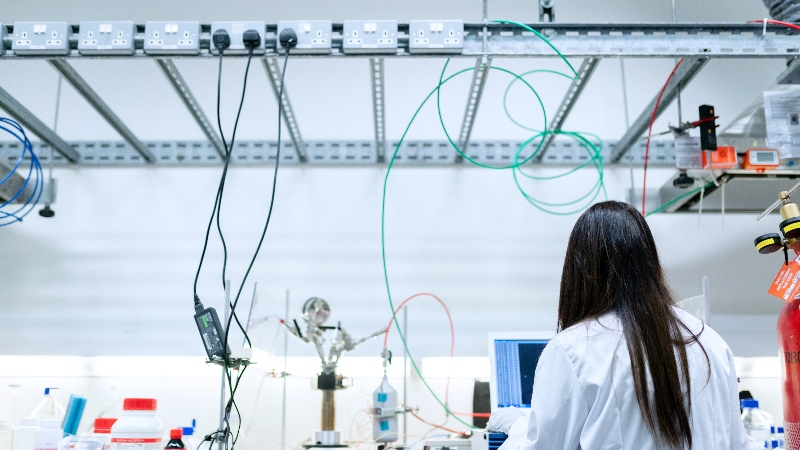
Read the latest blog posts from our project team
November 2021
Oxford Brookes is one of six UK universities funded by the British Council to work in partnership with Brazilian universities to support them advancing gender equality.

October 2021
UKRI published a blog that highlights the key findings from our research.
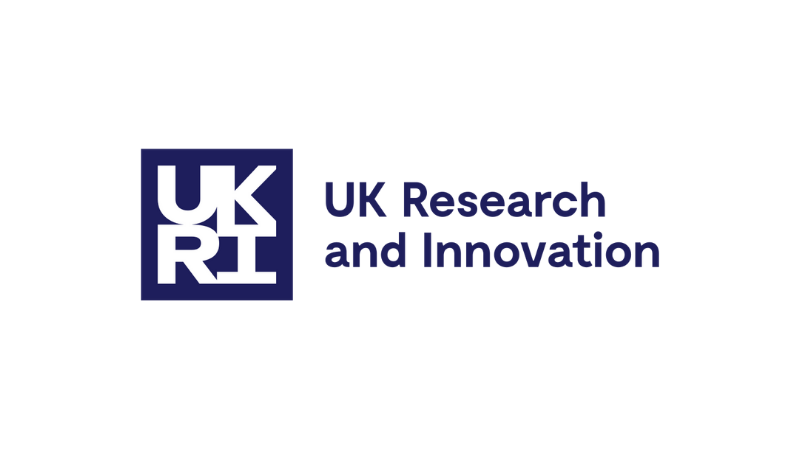
April 2021
Thanks to initiatives such as the 30% Club women’s participation on company boards has increased significantly over the last decade. The 30% Club is a global campaign led by company Chairs and CEOs who are committed to increasing gender diversity at board and senior management levels. In 2010 the percentage of women on UK FTSE100 boards was just 12.5%. Today it stands at almost three times this amount (36.9%, 30percentclub.org). Yet despite this relative success at the level of large corporates, the representation of women on small company boards remains low.
Data on spinout company boards is limited but our research found that 91% of spinouts have fewer than 50% women listed in their C-suite and 59% of spinouts have no women C-Suite members listed at all. With the average size of a spinout C-Suite being just 4.6 people, this means that the number of men is 4 and the number of women is 0.6….less than one whole person! (Griffiths and Humbert, 2019)
Small company boards
On 16th April, we invited a group of experienced women board members to talk about their experience of being on company boards and their work with the 30% Club. We also welcomed Norma Jarboe OBE, an expert on gender diverse boards and founder of Women Count. Norma introduced the unique case of women’s underrepresentation on spinout company boards and pointed out that these small companies with small boards are often managing highly valuable intellectual property (IP). University spinout companies have raised over £1billion of funding in 2019 alone (Beauhurst, 2021). Sadly though, as these companies grow the proportion of women on their boards decreases as business experts and investors are brought in to replace the original founders and directors (see also Griffiths & Humbert, 2019).
Our panellists, Tracey McDermott CBE, Group Head Conduct, Financial Crime and Compliance at the Standard Chartered Group, and Elizabeth Passey, Chairman (Convener) of the University of Glasgow and of the Committee of Scottish University Chairs, both board members themselves and Co-Chairs of The 30% Club Higher Education Initiative, responded to Norma’s presentation with optimism. Tracey reminded us that until recently, women’s representation on FTSE100 boards was very low and it took a collective campaigning effort (and subsequently Government intervention) to increase that number, but it can be done.
Elizabeth’s response was to demystify the process of becoming a board member and reassure the audience that in fact many of us have the capacity to be on a board as it mostly relies on analytical ability and common sense. She highlighted the resources available on the Women on Boards website that are designed to support women to become board ready, whatever stage of their career they are currently at. Both Tracey and Elizabeth agreed that women looking for board opportunities ought to be proactive and take a targeted approach – don’t wait for head hunters to contact you.
"University spinout companies are at the cutting edge of innovations that can transform the competitiveness of the UK economy as well as our lives. They need to strengthen their small,non-diverse Boards of Directors to real se their dynamic potential. Passionate directors with business acumen, contacts, and expertise can guide them to become established companies that trade profitably or exit as acquired or publicly traded companies." - Norma Jarboe
Diversity
There were several interesting discussions around the broad topic of diversity on company boards and what we, as academics and professionals, could do. One audience member asked how, as a woman of colour, she could address the resistance she felt from companies despite her extensive skills and experience. The panel agreed that some companies still need reminding about the benefits of board diversity and that a bold approach, such as explaining why inclusion matters or calling them out on their lack of diversity, could work in your favour.
The ethics of pay
One of the most illuminating discussions was around the connection between diversity on boards and remuneration. We learnt that different companies have different policies about whether or not board positions are paid and this can significantly affect who applies for those positions. Our panellists argued that unremunerated positions can reduce diversity as only those who have the time and the money can participate. For those feeling empowered, Elizabeth recommended this as another area where companies can be called out and challenged when they offer unpaid board roles. After all, active board members offer significant guidance to the company, using their knowledge, time and resources to do so.
"The business case for more diverse boards and more diverse companies is unarguable.It avoids groupthink, encourages innovation, and ensures better decisions.Yet women are still underrepresented in spin-out companies.We need to change that - I look forward to discussing the practical steps we can take to make a difference and break down barriers." - Tracey McDermott
Time
Following on from the discussion around pay, time was also mooted as a factor for low participation of women on company boards. There was some discussion over how much time was ‘normal’ but also a reminder that the number of days allocated would often be an annual allocation that was used up in short snippets of time, dotted in around other responsibilities. Both panellists noted that there are often synergies between roles and therefore the work done for one board (or in an executive capacity) can benefit another. Elizabeth also took this opportunity to explain how it is much easier to spend time on a topic that you enjoy, so if you want to work on a company board choose the company wisely and ensure it engages you and aligns with your pre-existing passions.
Academics on boards
The final discussion took us neatly back to the beginning to consider what academics could offer to company boards. The panellists were very complimentary about the skills academics can offer companies, we just needed to translate our skills and experience using a corporate lens. In other words, consider what transferable skills we can bring to the business that may complement and enhance board and business strategy. They suggested the best way to do this is to ensure the business aligns with our area of expertise and take the time to understand the organisation before approaching them.
"Enabling everyone to flourish to their full potential will bring untold benefits to enterprises and communities.There is no doubt that much has yet to be realised and I hope this event will encourage individuals to come forward and help others with the skills they possess" - Elizabeth Passey
This event was the second of three events we have hosted in collaboration with Brookes Enterprise Support. We now look forward to our next event, Investing in Women-led Start-ups and Spinouts on 12th May to better understand how we can increase the number of women founding university spinout companies from an investor's perspective.
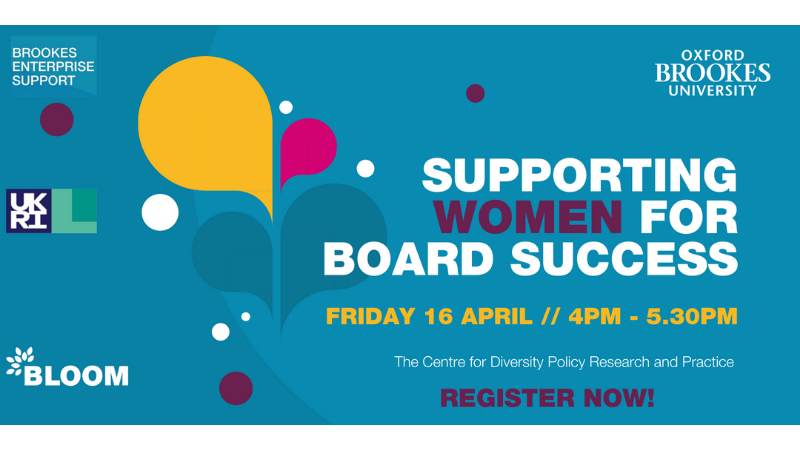
April 2021
This year Oxford Brookes Athena Swan open lecture, held during international women’s week, focused on women in innovation to celebrate their achievements but also to reflect on the challenges that need to be addressed to close the gender gap in this area.
We were joined by Dr Fanya Ismail, who shared with us her journey that led her to become a successful entrepreneur. She is the founder and CEO of SGMA (Sol-Gel Materials & Applications), a company that provides alternative packaging for food and drinks that is plastic free. In 2019 Fanya won the UKRI Women and Innovation award and in 2020 her company won the prestigious MassChallenge Diamond award in Switzerland.
Fanya was born in Kurdistan in North Iraq and moved to the UK in the mid-1990s. She did a master in 1999 at the University of Manchester. In 2000 she was awarded a PhD scholarship from the Royal Society of Chemistry and subsequently worked as a Postdoctoral researcher. Her story resonates with some of the findings from our research on the Spinout Journey: Barriers and Enablers to Inclusive Innovation https://www.brookes.ac.uk/women-and-spinouts/gender-and-university-spinouts-in-the-uk/. It provides some important learning points for Higher Education institutions to increase women’s representation in spinout leadership. Below are some highlights from the conversation with Fanya.
Women researchers need to be given the opportunity to work more flexibly.
Fanya decided to leave academia when she was expecting twins. She had already one child and with two more on the way she felt that she needed more flexibility in her working life. As a post-doctoral researcher, she was expected to be on university premises every-day when in fact there were aspects of her work, such as data analysis, which did not require lab work. These could have been done remotely from home enabling her to keep an eye on her children while doing the same amount of work, if not more. However, institutional expectations of presenteeism did not offer her the flexibility she needed. So, she left academia, undertook some legal qualifications, and set up her own business: a legal consultancy. Running her own business gave her the flexibility that she needed to combine work with childcare. Her experience sounds very similar to that of one of the women founders who took part in our research, who said: “When I came back from maternity leave for the third time I was just really wondering how I was to juggle everything”. Her colleague suggested to her “why don’t we think about applying for some funding to look at commercialising research?” which led this woman to become a successful spinout founder.
In the case of Fanya her talent was lost to academia but also to the STEM community for five years while she ran her legal business. She then decided to go back to the science and started the journey that took her to setting up SGMA in 2017.
Key learning point for HE institutions: it is crucial to enable women researchers to work flexibly to better balance their family responsibilities with work. This requires institutions to encourage their departments and research groups to reflect on their working culture and practices and challenge unnecessary presenteeism. The massive shift to home working forced upon all of us by the pandemic may help to rethink the way we work and balance it with other aspects of our life.
There is no such a thing as failure: there is always something to learn.
Fanya said that she does not believe in failure as there is always something to learn. She cited Thomas Edison who famously responded to a journalist, who was putting to him that he had failed 700 times, that he had not failed but successfully proven what did not work. As we all know Edison eventually succeeded. The need to talk about failure and to demystify it emerged from focus groups with early career researchers that we carried out as part of our research. Fear of failure can stop researchers from starting something new, like exploring commercialisation of their research. As one woman researcher who took part in the focus group discussions said “all the time I fear failure, I think it is the most indirect cause of a lot of [us not] starting any new things”.
Key learning point for HE institutions: Commercialisation of research is a risky activity and failure is part of the path to success. It is important to reflect how failure, for want of a better word, is discussed and conceptualised as part of training and development to support researchers. There is a need to focus more on the important learning that only comes from the realisation that something does not work.
Fanya concluded our conversation by reminding us all that her desire to put a smile on people’s face is what has driven her to develop a product to remove one of the great polluters of our time: the disposable coffee cup. Thanks to Fanya’s science and innovation soon we will be able to enjoy our coffee on the go in a plastic free cup, confident that we are no longer damaging the environment. That will indeed put a smile on our face!
If you wish to hear Dr Ismail’s story and the rest of the conversation you can watch the webinar video here. This is a recording of the Athena Swan annual open lecture, organised by the Women and Spinouts project and the Brookes Inclusion, Diversity and Gender Network. Professor Simonetta Manfredi was joined by Dr Fanya Ismail, winner of “Women in Innovation” award 2019 by Innovate UK. Dr Ismail is CEO and founder of SGMA, and shared her experience of founding a successful research-based business, with reflections on what can be done to close the gender gap in the innovation ecosystem.
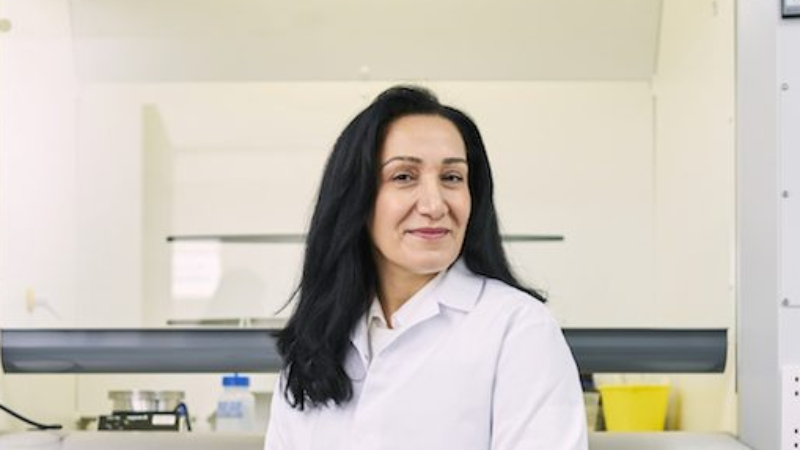
March 2021

July 2020
We learnt this week that the UK government plans to invest £300 million in an ‘R&D Roadmap ’ as part of their economic recovery package. This includes setting up an Office for Talent which seems to translate as an immigration review department to ‘cut unnecessary bureaucracy’ and ‘red tape’ for those wishing to work as researchers in the UK.
This could have a big impact on the HE sector as a whole but will be of particular interest to researchers wanting to commercialise their research through spinning out. Initial findings from focus groups we held across the UK suggest that visa restrictions are a significant barrier to commercialising research for Early Career Researchers (ECRs) who have come here to study and work. For many, starting their own company on a temporary visa is too risky; a risk compounded by the precarious fixed term contracts many ECRs find themselves on years after completing their PhDs. We are pleased to see that as part of the announcement, the government will be relaxing immigration rules so that PhD graduates (who complete from Summer 2021) will be entitled to stay in the UK for up to three years to work, in HE or any other sector they choose.
The government’s plans also include creating an Innovation Expert Group who are tasked with reviewing how the government supports research ‘from idea stage right through to product development’. We see this as a vital step in the process as there is a lot of support and government already available but much of it is incoherent and disjointed.
Buried toward the end of the press release is notice of an ‘innovation fellowship programme’ that looks like it is designed to support digital and technology development across public services. There is little detail about what this means as yet but academia is listed as one of the areas from which ‘cutting edge technology’ can be adopted for the benefit of the public good.
We will be watching eagerly for how this announcement translates into support for innovation in HE and hope we can continue to be part of the conversation. It is vital that such support should acknowledge that the innovation ecosystem is not yet an inclusive space for women (See our report on the UK spinouts landscape from a gender perspective) and other underrepresented groups. Future funding should consider how to prevent perpetuating these inequalities and contributes towards inclusive and albeit more sustainable innovation ecosystems. After all, inclusive innovation is for everyone’s benefit so we think it would be money well spent.

May 2020
As we all know, a big part of academic life involves networking and a big part of a research project involves disseminating the findings. With conference and seminar activities cancelled it’s been a lot harder to do either of these things recently.
Up until now the project team has been busy building local and national (even international) networks so it’s been a bit strange not having any events lined up in. It also doesn’t look great for our project deliverables but that’s another story.
It’s taken a few weeks for everyone to work out what to do but we are now starting to see some great adaptations of conferences, training and networking events into the online space.
A recent highlight for us has been the collaboration between our friends at the STEM Advisers Hub (SAH) and the Oxford Science and Technology Sector. We’ve been to a few SAH meetings in the past and really like the way they combine sharing of ideas and problem solving with effective networking. I was curious how this was going to translate online.
Most blog posts out there on the genre of ‘networking using Zoom in lockdown’ - exactly as I typed it into Ecosia search engine - are offering numerous tips about how to sustain networks during lockdown and how to look professional during online meetings (don’t sit in front of a window and always mute your mic…the usual). Some go a bit further by reminding us that now is not the time to sell - now is the time to reach out, ask ‘how are you’ and as in any networking space, ‘what could I do to help you right now?’.
But that was it, very few examples or case-studies from those who had actually done it. So I thought I would try and write something a bit more tangible Stem Advisers Hub meeting as an example of what it is actually like to network on Zoom during lockdown. The most memorable features for me were:
Breakout rooms and introductions - these worked really well for networking as they created smaller discussion groups and we were given a generous amount of time to introduce ourselves to each other. It was a bit like being put into groups at a seminar or workshop rather than the sort of organic networking chats that start when you get coffee, but it was an effective way to introduce people to each other with a bit more depth than the usual intros.
A Breakout room chair - the meeting host ensured that each room had a core member of the SAH who could act as chair, prompting each member to speak and redirecting any discussions that went off track during the tasks…
A task - the first group task was simply to introduce yourself to everyone but the second (in different breakout groups this time) was a bit more structured and was designed to replicate the kind of discussions that we have at regular SAH meetings. The task was simple, well explained and familiar to some members of the group, all of which made for a good conversation and advice sharing space, I think. As did…
Having enough time for introductions and tasks - the timing for each session was spot on. It initially seemed like each task was allocated way too much time but it turns out our host Su is a pro at this and has learnt you always need more time than you think for these things.
Listening to each other – everyone in the breakout groups were respectful of each other and were good at listening and responding during each task. Perhaps because each person only had a few minutes to speak it was easy to listen and engage with them. It probably also helped that it was a problem sharing and advice forum so the discussion was lively, interesting and benefitted everyone (and their businesses).
Host to share contact details - other than direct messaging on the Chat, it is hard to seek people out and strike up a conversation as you would do in a normal networking scenario. So networking online needs a bit more prompting and co-ordination so (with everyone’s permission) Su shared all participant’s contact details afterwards.
Following up - then it was down to us to follow up with each other. This is the bit I always struggle with. This group is predominantly small business owners so making LinkedIn connections was their preferred method and I ended up with four new connections which I was pretty pleased with considering I (as a university researcher) was the outlier in the group.
I’ll be glad when networking involves a bit more human contact again and I miss our new friends at SAH, but this was a pretty decent substitute that yielded good results I think. The catering was not as good though, must work on that.
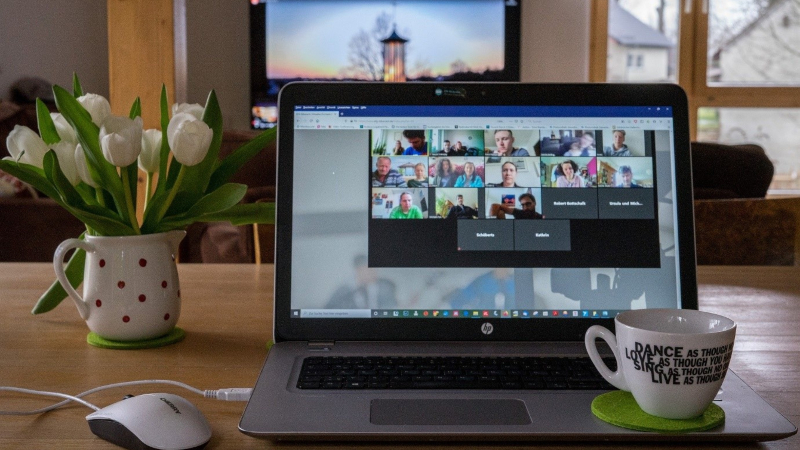
March 2020
Last week we had the pleasure of presenting at the Women in Innovation event for International Women’s Day 2020. We were in good company with some TEDTalk worthy presentations from Sherry Coutu from Founders4Schools and Deborah Forster at Tech Talent Charter, amongst others. Not to mention the fascinating panel discussions with women innovators and company founders, as well as advocates and activists for organisational and cultural change. The location was also beautiful, which helped.
The day started with the slightly depressing but now overly familiar stats that only 1 in 7 applicants for Innovate UK grants are women and that only 1 penny in every pound goes to businesses with all women founders. There was a feeling of solidarity in the room as we all recognised and agreed that women in innovation are struggling to access funding and that there is a lack of relatable role models and mentors for women entrepreneurs. We also agreed that just because we recognise it that doesn’t mean we have to accept it.
One memorable moment for me was during the second session entitled A Collective Movement - What has been happening, what is making a difference and what needs to happen next. Alicia Greated, Chair and CEO of Knowledge Transfer Network (KTN) asked the panel, how do we keep the argument for gender equality fresh so not to be accused of ‘banging on about it’? I loved Maggie O’Carroll’s (The Women’s Organisation) answer that in fact, ‘we’re not talking about it enough!’ She explained that this isn’t just a ‘woman thing’ when women are losing money - it’s an economic and social issue. So simple, succinct and powerful. I am definitely going to borrow that one.
I was also keen to stay into the afternoon to hear from real life investors but was a bit miffed when I saw the investment panel consisted of two white men - was this ironic? I was and remain a bit cynical of this decision but was reassured at least by the two men’s demonstrably inclusive approach to investment and innovation. Simon Thorpe is an Angel Investor and Chair of Cambridge Angels, who has invested in over 50 companies of which 16 had a woman founder or co-founder. A decent proportion but it left me wondering whether the women also got a fair share of the money too.
The second investor, Matt Penneycard had co-founded a new VC company with the almost infamous Check Warner, (also co-founder of Diversity VC who I assume was unavailable on the day…) called Ada Ventures who focus on ‘overlooked founders and markets’. Matt explained that their intention is to challenge conventional investment protocol by rejecting the pattern matching theory. I was intrigued to learn that most VCs ‘pattern match’ their investment based on the idea that what has worked before will work again. In theory at least, this is deemed less risky. Matt argued that this approach creates unconscious bias, overlooks new innovation and is partly responsible for the phenomena of serial entrepreneurs.
This small insight into the investment world was a lightbulb moment for me and I wondered why I’d not heard of this up until now. There is a bona-fide theory for what we have been trying to understand and now we have the language to talk about it. Pattern matching could explain why we don’t see as much exciting new innovation as we should and why some new types of technology, however ground breaking, don’t always get the money they seem to deserve. So it was reassuring to learn about a business like Ada Ventures and we are looking forward to seeing some of the exciting stuff they will be investing in.
So, thanks for having us, Innovate UK and KTN! As well as getting to share our work I learnt a lot and met some wonderful and inspiring women. Such a great network and we wish all these women entrepreneurs, and their supporters, well in their exciting and inclusive ventures.
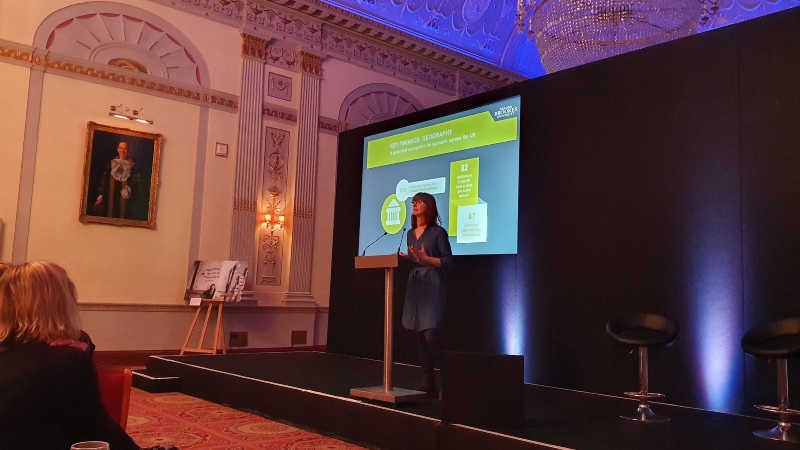
December 2019
The Gender Academy at the International Training Centre (ITC) in Turin, Italy is an annual event that engages with global challenges through innovative methodologies, practical solutions and high-level discussion. The Academy runs for two weeks every year and brings together participants from all over the globe, united in the desire to learn more about gender related that are affecting our time.
Representatives from Universities, NGOs, trade unions, governments and businesses gathered together for two weeks to hear lectures from world leading experts and be trained by specialists on issues such as discrimination and pay, the care economy, how to utilise statistics and data in gender studies, gender-based violence and women’s leadership among many others. It was within this assemblage of esteemed colleagues that the Women and Spinouts project team found themselves last week, having been asked to deliver the keynote speech on the last day of the academy.
After familiarising ourselves with the complexities of delivering a presentation to an audience that speaks multiple languages, we were introduced by the brilliant Benedetta Magri who is not only the Manager of the International Labour Standards, Rights at Work and Gender Equality Programme at the ITC and Manager of the Gender Academy itself, but also a key advisor for our project.
Dr Anne Laure Humbert began the presentation by making the audience confront our stereotypical perceptions of scientists and engineers, contrasting Albert Einstein- immediately recognisable to participants- to Katherine Johnson, a black American mathematician who was pivotal in producing the calculations for NASA spaceflights. Although one member of the audience recognised that she was a woman who worked for NASA, no one could name her despite her vital role in history.
The lack of women’s representation in the fields of STEM is an important aspect of our project, and this presentation exercise involving people from all over the world showed the constancy of the perception of women and men scientists and how it persists globally. Dr Humbert explored the importance of inclusive knowledge in innovation, highlighting the developments in medicine and physics that have only been made possible by acknowledging the needs of all members of society, and highlighted the importance of encouraging women to engage with both STEM subjects and business to encourage further transformative change.
Dr Heather Griffiths then presented the details of our recent quantitative report on ‘Gender and University Spinouts in the UK: Geography, Governance and Growth’. Of the 789 active spinouts in the UK, only 13% have at least one woman founder and this varies geographically, with the ‘Golden Triangle’ in the South of England and Scotland achieving higher numbers of women among the founding team and Wales having no women founders so far.
Dr Griffiths also shared some of the preliminary findings from our qualitative research in the form of interviews with both women and men spinout founders, and explained how further exploration is needed into issues such as mentoring which, although are an important way of inspiring women to pursue entrepreneurship, can also cause issues when the power dynamics are inequal.
Whilst many of the women spinout founders we interviewed did not recognise that their gender was a barrier to their entrepreneurial venture, many of the things that they discussed pointed to gendered imbalances in investment teams, difficulties in ensuring positive work life balance and the inflexibility of both academia and business to the needs of women. These issues are ones which we will aim to address later on in our project when we seek to develop tools for universities and individuals UK-wide to encourage a more inclusive innovation process when it comes to spinouts.
Our presentation was followed by a fascinating discussion facilitated by Professor Simonetta Manfredi and engaged with Spanish, French, English and Arabic speakers in the audience. Some of the key issues raised related to geographical significance of our research, as many of the locales in which the participants occupied had similar issues but needed different ways to participate in discussions on the topic and varied solutions.
One participant from the Occupied Palestinian Territory commented on how there is a big push for women’s entrepreneurship in her area due to the unstable environment, however infrastructure surrounding these types of programmes is often not fully formed and could benefit from the input of global mentoring systems to access advice and guidance on the process.
Others expressed the importance of raising up women’s voices and ensuring that we as a project are involved in development initiatives that seek to balance women’s multiple roles and consider care work. The role of the university itself was also discussed, as it was pointed out that universities are uniquely positioned to engage with other industries such as finance, business and other sectors within HE and should also seek to form international collaborations that could ensure growth of underrepresented higher education providers, enabling growth of smaller and less recognised institutions through the commercialisation of research.
The discussion was enlightening, and as a team we have and will continue to reflect on the ways in which these suggestions can be utilised in our project going forward. The experience of being able to engage with such high-level experts and practitioners from around the world in both the teachers and the participants of The Gender Academy was a great honour and engendered fascinating ideas and debate that has given us a great deal of food for thought.
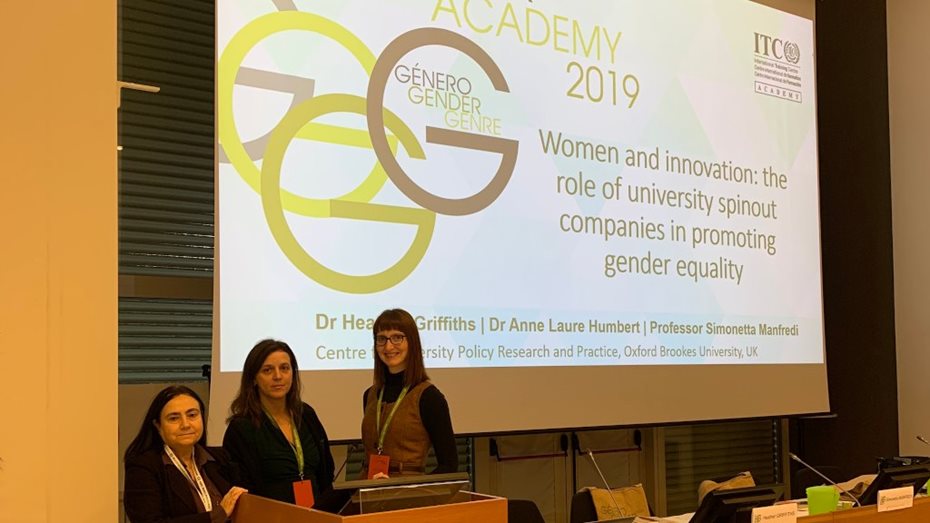
April 2019
Close your eyes and picture an image of a scientist. What do you see? If, like me, it’s a lab-coated, goggle-wearing white man or perhaps a frizzy-haired, Einstein-esque boffin then you are not alone. This is because we have been socialised through education, the media and history to believe that science is a man’s domain. Our 2-year project ‘Women and Spinouts: A Case for Action’ is investigating why so few women researchers have founded STEM spinout companies. The project vision is to step change institutional capabilities in order to increase the participation of women researchers in STEM disciplines in university spinouts.
It's nothing new to highlight that women are vastly underrepresented within scientific disciplines. Advance HE tell us that within academia, women make up 42% of total STEM academics in the UK. It’s true that in some STEM subjects, women’s representation in academia is equal to men’s or even higher. For example, 75% of nursing and allied health academics, 61% of psychology and behavioural sciences academics and 54% of medicine academics are women. However, when we turn away from the stereotypically gendered ‘caring’ STEM subjects, the picture is bleak. The engineering, technology, mathematics and physical science disciplines desperately lack women academics. This is particularly shocking in electrical, electronic and computer engineering where women account for just 14.7% of academic staff and physics where only 18.6% of staff are women.
In industry, the scene is similar. The WISE Campaign reported that in 2017, women made up just 24% of those working within core STEM industries. And once again women working in engineering, technology, mathematics and the physical science sectors are vastly marginalised with only 11% of engineering professionals and 17% of IT professionals being women.
The main cause of the low number of women working within STEM occupations originates from a ‘leaky pipeline’, whereby as women progress through education and employment they drop out at various stages. This is very evident in mathematics. 38,357 girls undertook a maths A-Level in 2018 which sharply fell to only 5,990 who studied it as a first year undergraduate degree. Furthermore, the number of women studying a Masters in mathematics dropped to 1,510 and 865 for doctoral level, showing that women are often not continuing to further their education within STEM.
But why is this the case? Studies have shown that girls frequently outperform boys in STEM subjects. The recent GCSE results show that a larger percentage of girls than boys achieved A-grades (or 7’s) in chemistry, computing, engineering and statistics and there was a similar pattern for A-Level results where girls received more A* and A grades than boys in computing, design & technology, IT, maths and physics. Furthermore, at the first degree level the percentages of women achieving first class degrees was higher than men in biological sciences, computer science, engineering and technology, mathematics and physical sciences.
Although our project is investigating the low number of women who have founded spinout companies, throughout our interviews we have found that an overwhelming amount of participants, when asked ‘what can we do to increase women’s representation within spinouts’ responded with ‘we need more girls in STEM’. It’s true - if the women aren’t there to start with as scientists, they will never become scientific entrepreneurs. We’ve established then that across education, academia and industry, girls and women are marginalised but why is this?
Watch out for my next blog post where I’ll be considering why so many girls and women turn away from science and maths...

April 2019
In my last blog post I was pondering over the low number of girls and women who study and work in STEM occupations. The Centre for Diversity Policy Research and Practice has started a two year project that is investigating the causes of women’s low representation in founding STEM spinout companies. Part of the problem boils down to this - there simply aren’t enough girls and women in STEM. However, if they are succeeding in these subjects, as my last post suggested, then why are they disappearing?
Once upon a time, some argued that girls are simply not as good as boys at STEM subjects - well I think the results from my previous blog post disprove that theory - and others have contended that girls are simply uninterested - again, from my own personal experience I had a chemistry set, microscope and telescope growing up and was fascinated with science and its workings. In fact, research has shown that girls are often put off from scientific subjects not because of competence or interest but due to being socialised differently to boys which can lead to developing a lack of confidence in their ability.
Here I’m talking about the gendered social construction of science, maths and technology as being masculine. Researchers have shown that as young as the age of five girls are led to believe that maths and science is for boys and it’s no wonder why. A quick Google search of toys for both girls and boys demonstrates this nicely. For the girl’s toys, there is a sea of pink dolls, play houses, princesses and domesticated toys such as pretend ovens, kitchens and household appliances. For boys, it’s a different scene, and moreover one full of cars, trucks, superheros, lego and models to build from scratch. In fact, in 2008 sisters Emma and Abi Moore were so fed up of the focus of girls toys on being pretty, passive and obsessed with shopping, fashion and make up they launched ‘Pinkstinks’ which run ‘campaigns [that] creat[e] positive changes in the products, messages, labelling, categorisation and representations of girls.’
However, the buck doesn’t stop there and the education system has a lot to answer for as well. STEM is seen as male dominated and girls branded ‘unfeminine’ if they choose such subjects. Furthermore, studies such as those by Hill et al, 2010 and Ceci et al, 2014, have shown that girls self-evaluate their performance as inferior to boys in science and maths, yet boys self-evaluate their ability to be higher than girls. Indeed I lived through this experience myself during my A-Levels. Inspired and encouraged by my teacher for GCSE chemistry - who was a woman - I entered my first A-Level chemistry class confident and excited after achieving A*A for my science GCSEs. Yet after a year, I dropped the subject with a C grade thinking that I was unintelligent and the world’s worst chemist. Out of the class, only 3 of us were girls. However, it was my teacher’s attitude that ultimately sent me running from the subject. In the class there was a small group of all boys who the teacher consistently referred to as ‘The Elite’. After a year of struggling with what was a difficult subject - there is no denying that - and feeling constantly put down and patronised by my teacher I simply gave up and hung my head in shame.
So what is the solution? Well like many challenges, there is no one resolution but we can start with a few simple steps to encourage our girls. Firstly, buy a range of toys for both girls and boys from a young age - make sure girls are exposed to building things, blowing things up (with a chemistry set), learning how to code and finding fun in mathematical puzzles. Secondly, support and encourage girls more at school - teachers in particular. Let them know it’s cool to be a scientist and it’s not ‘un-feminine’. If they’re struggling, tell them how great they are doing and not to give up - we all learn at different paces. Finally, we need more women role models. I didn’t even realise that I was good at chemistry until my teacher told me and the fact that she was a woman enabled me to relate to her. At careers fairs or talks, make sure there is an equal representation of women and men who work in different sectors - particularly STEM. If girls can see that other women have done it, they know that they can do it too and will inevitably follow in their footsteps.
So this is a call to arms, girls deserve the opportunity to work in the broad, interesting and dynamic world of STEM just as much as boys. There are a number of resources that can help with this such as the WISE campaign’s ‘People Like Me’ and STEMettes. We believe that girls can do it and it’s time they believed that they can do it too.

March 2019
This was the second time in a month I’d visited the UK Space Agency in Didcot, Oxfordshire. One of the things I love about this job is the unexpected places I get to go to in the name of research. This time it was to attend a training event hosted by the SETSquared partnership, a world-leading incubator. Co-hosted by the UK Space Centre the event provided training and mentorship to women entrepreneurs whose work involves space tech or satellite data. Several of the women we’ve interviewed for our research mentioned how valuable these types of events have been so we wanted to see one for ourselves.
I counted 15 women attendees of (visibly) diverse ages and backgrounds, all of whom had founded start-up companies; or several companies in some cases. The training started right at the beginning by drawing on the work of Simon Sinek who explains how we need to Start With Why.
For those wanting to be successful entrepreneurs, the takeaway messages from the morning session were:
The programme facilitators broke these expectations down so the whole thing seemed less daunting and the first question of the day was, ‘what do your parents do?’ Even I could answer that. The two-day programme was structured as eight lectures on a different topic, each followed by participatory workshop session. By the end of day two, attendees would have developed the content to make a 3-minute business pitch.
Programme facilitator, Andrea Kelly explained that SETSquared training events all tended to follow this format but what made them unique was the involvement of business mentors who provided support and advice at every step. Andrea and her colleagues are keen to promote more women only events as they feel women and men entrepreneurs have different needs and that women benefit from having a space of their own to share their ideas and build confidence.
This is why our research matters and why we feel there is scope to offer something new to women in STEM who may want to start their own companies. We are currently building our online Inspiring Women series to showcase those women in STEM who have successfully spun-out their ideas, and we’re collaborating with organisations like SETSquared and the UK Space Agency who want to see more women in entrepreneurial roles.
Although we only started this project in November we have met some incredible women with inspiring ideas and enviable dedication to their beliefs and we know there are more of them out there. If you know one, or are one, please consider getting in touch to share your experience and inspire other women to follow in your footsteps. We are always looking for research participants or collaborators so any ideas and contributions welcome. Follow our progress on X or contact us over email as we would love to hear from you.
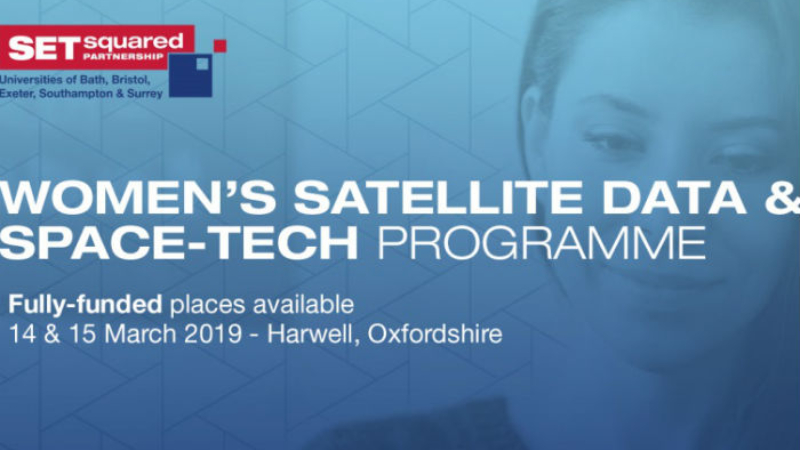
February 2019
The Astropreneurs’ programme supports entrepreneurs through businesses and technical mentoring and networking in order to overcome the business, financial and technical barriers for the development of new innovative concepts and ideas. Astropreneurs is a mentoring programme, with the aim of linking capabilities and resources for support of Astropreneurs with:
Astropreneurs is a European wide programme and the UK lead organization is the Science and Technology Council. Participants can, through the Astropreneurs network, access expertise and resources from throughout Europe. After joining the programme an ‘Astropreneur’ is assigned a project manager, who will allocate a single or group of selected mentors to meet the Astropreneurs’ requirements. Astropreneurs will receive their mentoring over a three-month period, to accelerate their concept/idea forward with a plan and structure to fast track towards a viable business.
To find out more about Astropreneurs visit www.astropreneurs.eu
Contact Details:
Graham M Mobbs
UK Astropreneurs Programme Manager
Science and Technology Research Council.
Email. Graham.Mobbs@STFC.ac.uk
Mobile. 07738 116503
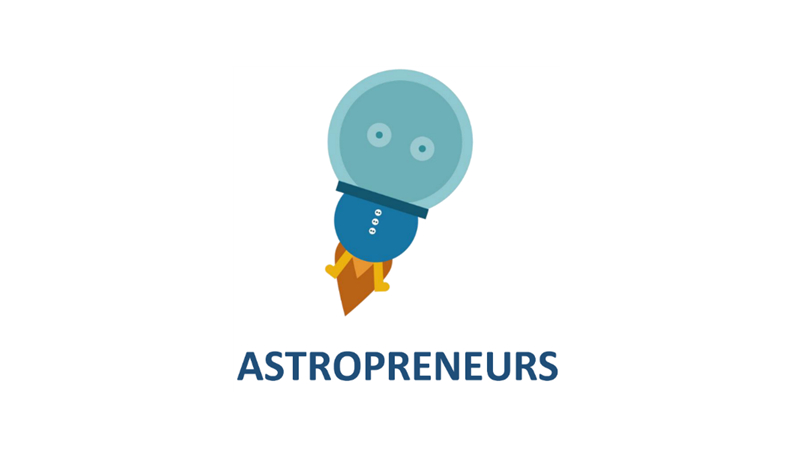
February 2019
This week, the team here at the Centre for Diversity Policy Research and Practice have noticed the mounting evidence that exists within the general economy about a significant gender gap among business founders. A recent report on UK VC & Female Founders, published by the British Business Bank, shows that of the 5.6bn of venture capital (VC) invested into UK businesses in 2017, 89% went to all male founding teams. With mixed gender teams getting 10% of investment, companies funded solely by women were getting less than 1p for every £1 of venture capital investment.
Another report by Beauhurst found that investment in companies founded by women was actually declining with 16% of equity deals in 2016 going to female founded companies which is 2% less than in 2016. These findings suggest that the UK is missing out on a potential pool of talented women that could make a significant contribution to the economy. However, this is not just a British phenomenon as Atomico’s report into The State of European Tech paints a similar picture across the EU. They found that companies funded by men received 93% of the capital invested in 2018, a figure which remains unchanged since 2013.
The British Business Bank’s report also highlighted the paucity of women involved in the decision making process of UK VC investment as only 13% of senior people on VC investment teams are women and 48% of investment teams have no women at all. Moreover, the report points to the risk of unconscious bias when assessing a new business at a start-up stage. Whilst the risk assessment of mature businesses involves more objective measures like past financial performance, assessing new businesses relies on subjective and less tangible criteria. As the study points out ‘because male entrepreneurs are in the majority, women may seem to be ‘atypical’ or ‘riskier’ by comparison’.
We expect to come across similar issues as we research the causes of women’s under-representation as founders or co-founders of university spinout companies. University spinout companies represent an important point of intersection between universities and businesses. Encouraging and understanding women’s engagement in spinout companies is relevant to the UK’s new Industrial Strategy which aims to increase investment in science, research and innovation and to support new businesses. There is a role for the Higher Education sector to take a lead in improving the gender balance in the eco-system that leads to innovation.
Our project, Women and Spinout: A case for Action, funded by the EPSRC under its Inclusion Matters scheme, aims to achieve a step-change in institutional capabilities to increase the participation of women scientists, engineers and mathematicians in spinout companies’ leadership and to foster greater interaction with industry and potential investors. We are keen to hear about the experiences of both women and men academics who have successfully founded at spin-out to investigate possible gender differences. Please contact us if you would like to share your experience or keep in touch and join the conversation to help us raise awareness about these issues and find solutions to address them.

